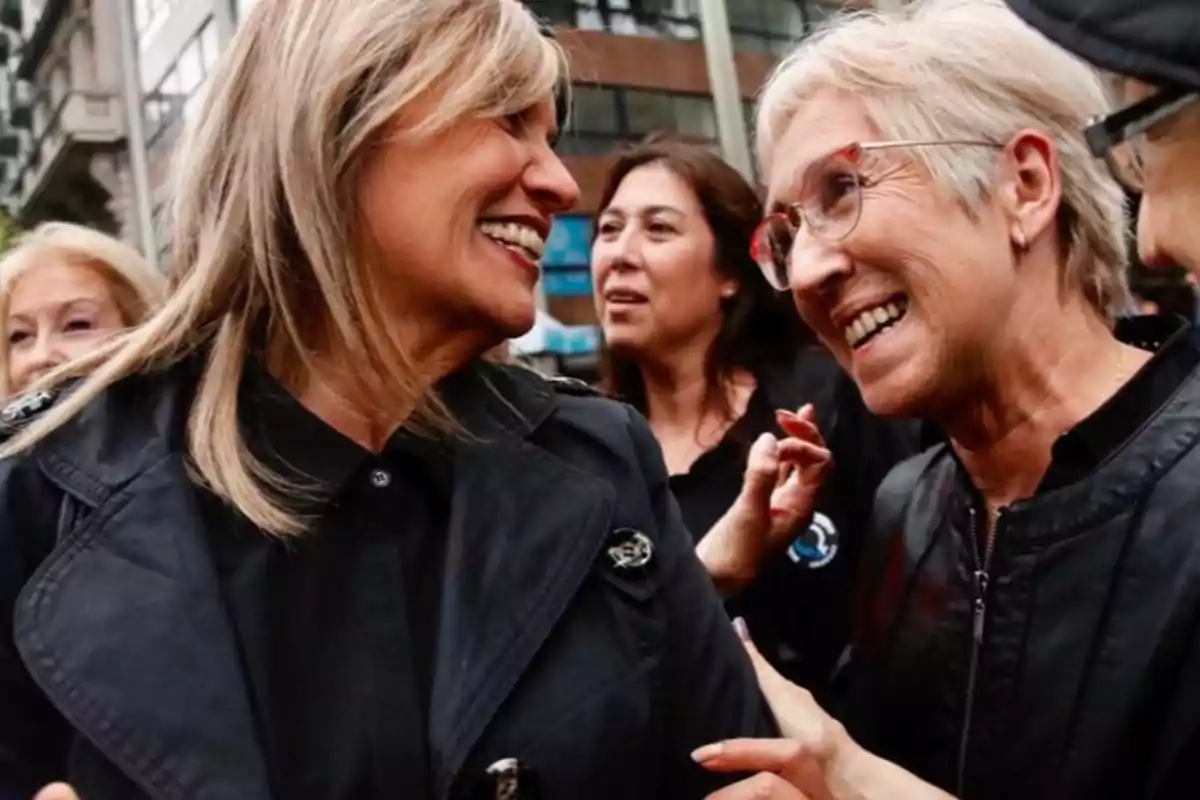
The lie of Uruguayan feminism, a den of hate and discrimination
Feminism as a communist pretext to seize power.
International Women's Day is an opportunity to reflect on the true meaning of the struggle for equality. While the dominant discourse insists that women's rights are achieved through the State, history tells us otherwise: the first voices in defense of equality were liberal.
In 1780, Jeremy Bentham was perhaps the first modern feminist. He argued that there was no rational justification for excluding women from the same rights as men. In a world where inequality was the norm, he was one of the first voices to point out the inconsistency of these legal restrictions.
Decades later, in 1869, John Stuart Mill published The Subjection of Women, a pioneering essay that denounced the legal and social oppression imposed on women. Mill, a defender of individual freedom, didn't speak of a supposed battle of the sexes, but of the right of each person—man or woman—to live without restrictions imposed by the State or society.
Almost 200 years ago, liberalism already defended gender equality without resorting to coercion or victimhood. In 1957, Ayn Rand published Atlas Shrugged, where she consolidated her objectivist philosophy, promoting individualism, reason, and private property.

For Rand, equality wasn't achieved through quotas or state privileges, but by ensuring that each individual—man or woman— could forge their destiny without governmental interference.
In 1943, Isabel Paterson published The God of the Machine, a book that laid the foundations of modern minarchist thought. She advocated for minimal government, the free market, and individual responsibility, influencing a whole generation of libertarian thinkers. That same year, Rose Wilder Lane published The Discovery of Freedom, where she argued that the history of human progress is the history of the struggle against state oppression.
She rejected any form of government control over people's lives and defended the free market as the true path to prosperity.
In 1979, Margaret Thatcher made history by becoming the first woman to hold the office of Prime Minister of the United Kingdom. Known as "The Iron Lady," Thatcher challenged the status quo with policies that reduced state intervention and revitalized the British economy through privatization and deregulation.

For her, collectivism was the enemy of prosperity, and true independence for women could only be achieved through self-sufficiency and meritocracy. In more recent times, Giorgia Meloni, who in 2022 became the first woman to lead the government of Italy, has challenged the dominant progressive discourse by defending values of national sovereignty, cultural identity, and economic freedom.
While she isn't strictly liberal in all her approaches, her emphasis on self-determination and reducing state power in citizens' lives has been a breath of fresh air against the dependency models promoted by collectivism.
You might be interested: IMM funds tribute to terrorist.
However, we can't ignore how certain female figures of the Republican Coalition in Uruguay have distorted this liberal legacy by joining marches and movements that, far from promoting individual freedom, reinforce state dependency.
Women like Valeria Ripoll, Beatriz Argimón, Mónica Bottero, and Laura Raffo have had a detrimental presence in these demonstrations, aligning with agendas that contradict the principles of autonomy and personal responsibility.

We can't overlook the role of Laura Raffo, whose delusional feminist stance leads her to be scandalized by figures like Javier Milei, a defender of pure liberalism who rejects the statist policies that she, in her confusion, fervently embraces. Raffo, a self-proclaimed champion of equality, gets lost in an incoherent discourse that mixes victimhood with a blind faith in interventionism, betraying any hint of liberal principles by being outraged with those who propose real freedom instead of the bureaucratic crumbs she defends.
You might be interested: Orsi wants to allow union occupation.
Ripoll, with her past of union militancy and her shift toward the National Party, has used her platform to support discourses that mix victimhood with demands for state intervention.
Argimón, as vice president and self-proclaimed feminist, has promoted initiatives that perpetuate the idea that women need government tutelage to thrive, betraying the essence of liberal feminism.
Meanwhile, Mónica Bottero, from her role in InMujeres, has led efforts that, under the pretext of equality, have consolidated a bureaucracy that lives off public funds, moving away from true emancipation.
You might be interested: Orsi wants to allow union occupation.
The government of Luis Lacalle Pou, far from resisting this trend, has actively supported this feminist movement for years with public money, granting positions and resources to institutions like InMujeres.
This entity,funded by all citizens' taxes, has become a symbol of how the State meddles in women's lives under the guise of protecting them, when in reality it infantilizes them and makes them dependent. Far from promoting individual freedom, the government of the Republican Coalition has ceded ground to a statist feminism that contradicts the principles of Bentham, Mill, and Rand.
On the other hand, the Broad Front, with figures like Carolina Cosse at the helm, intends to take this state intervention to even more extreme levels. Cosse and her coalition have made it clear that their vision of equality involves increasing the State's presence in every aspect of women's lives, from mandatory quotas to welfare policies that reinforce the narrative of victimization.
This approach not only perpetuates dependency but also ignores women's ability to fend for themselves in an environment of true freedom.
While liberalism trusts women as sovereign individuals, the Broad Front reduces them to subjects that need to be rescued by bureaucracy.
While collectivist ideologies have reduced women to a political tool, liberalism has been the only movement that truly trusted their ability to decide and thrive on their own.
Liberal feminism doesn't seek privileges granted by bureaucrats, but the essential right to life, liberty, and property.
Today, on this March 8, let's celebrate all the women who have defended their freedom against all forms of oppression, especially those disguised as state aid. Let's reject the agendas that, under the guise of feminism, bind us to the yoke of collectivism, and honor the legacy of those who understood that true equality is born from individual freedom.
More posts: